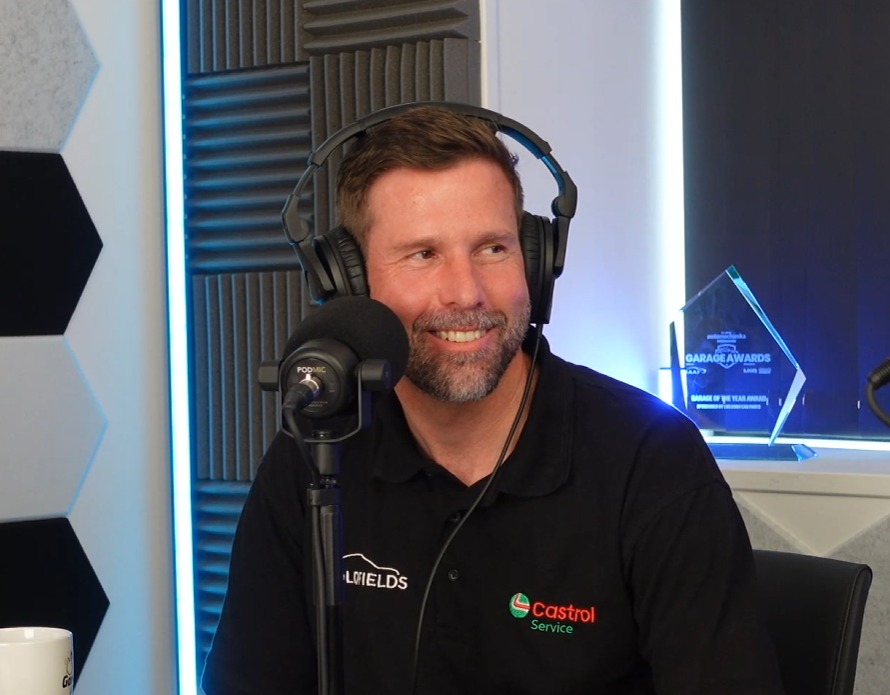In today’s fast-paced business environment, understanding and exceeding customer expectations can set a company apart from its competitors. The latest Chew The Fat episode of the podcast hosted by Alex, Leo, and Tim, delved into this topic, exploring strategies to enhance customer value without incurring significant costs.
Youtube – https://youtu.be/YfThqelebfc?si=OcNJFDcU0fcQvZvJ
Spotify – https://open.spotify.com/episode/64wB6d2bWeSqL8IIaZeUpu?si=4bb01b75696c493c
Apple – https://podcasts.apple.com/gb/podcast/5-increasing-customer-perceived-value-in-your-garage/id1742771842?i=1000657627956
The Psychological Moonshot
One of the primary concepts discussed by the hosts was the “psychological moonshot,” a term popularised by marketer Rory Sutherland. This approach involves identifying low-cost, high-value improvements that enhance customer experience. A prime example is Domino’s Pizza, which revolutionised its service not by speeding up pizza delivery but by reducing customer anxiety through an app that tracks the delivery process. Similarly, Uber’s app, which shows the location of the ride, alleviates customer anxiety without necessarily speeding up the arrival of the car.
Communication and Transparency
A recurring theme in the podcast was the importance of communication and transparency. The hosts emphasised that many customers complaints stem from a lack of information. For instance, when a car is in the shop, customers often worry about the cost and the timeline for repairs. Proactive communication can significantly reduce this anxiety. Simple actions like providing regular updates, using automated booking reminders, and offering detailed explanations of the repair process can make a substantial difference.
Practical Implementations
Several practical implementations were discussed by Alex, Leo, and Tim, including:
- Visual Transparency: Installing windows in the workshop allows customers to see their vehicles being serviced, which builds trust and reduces anxiety.
- Personalised Service: Collecting information about customer preferences, such as how they take their coffee, and noting these details in the system can create a personalised experience that makes customers feel valued.
- Health Checks and Digital Reports: Conducting vehicle health checks and sending customers pictures and videos of any issues found can provide clarity and build trust. This transparency helps customers understand the necessity of the repairs and feel more comfortable authorising them.
- Proactive Customer Interaction: Meeting and greeting customers as they arrive, parking their cars for them, and ensuring they are comfortable from the moment they walk in can create a positive first impression and set the tone for the rest of their experience.
Addressing Anxiety Points
The hosts highlighted the significance of addressing key anxiety points in the customer journey. For example, ensuring that customers do not have to call for updates by proactively providing information can prevent frustration. Moreover, managing expectations through pre-booking confirmations and clear communication about what the service will entail can reduce uncertainty and build confidence.
Leveraging Technology
The use of technology to automate processes and improve customer communication was also discussed. Online booking systems, automated reminders, and digital vehicle health reports are tools that can streamline operations and enhance the customer experience. These technologies not only provide convenience but also ensure that customers are well-informed and feel valued.
The Role of Human Touch
Despite the advantages of automation, the human touch remains crucial. Having friendly, knowledgeable front-of-house staff who can relate to customers and provide personalised service is invaluable. Training staff to communicate effectively and empathetically can turn a potentially stressful experience into a positive one.
Conclusion
In conclusion, enhancing customer value does not always require significant financial investment. By focusing on communication, transparency, and personalised service, businesses can reduce customer anxiety and improve satisfaction. Implementing low-cost, high-value changes, such as those discussed in this episode, can create a competitive edge and foster lasting customer loyalty. As demonstrated in the conversation between Alex, Leo, and Tim, sometimes the smallest changes can have the most significant impact.


